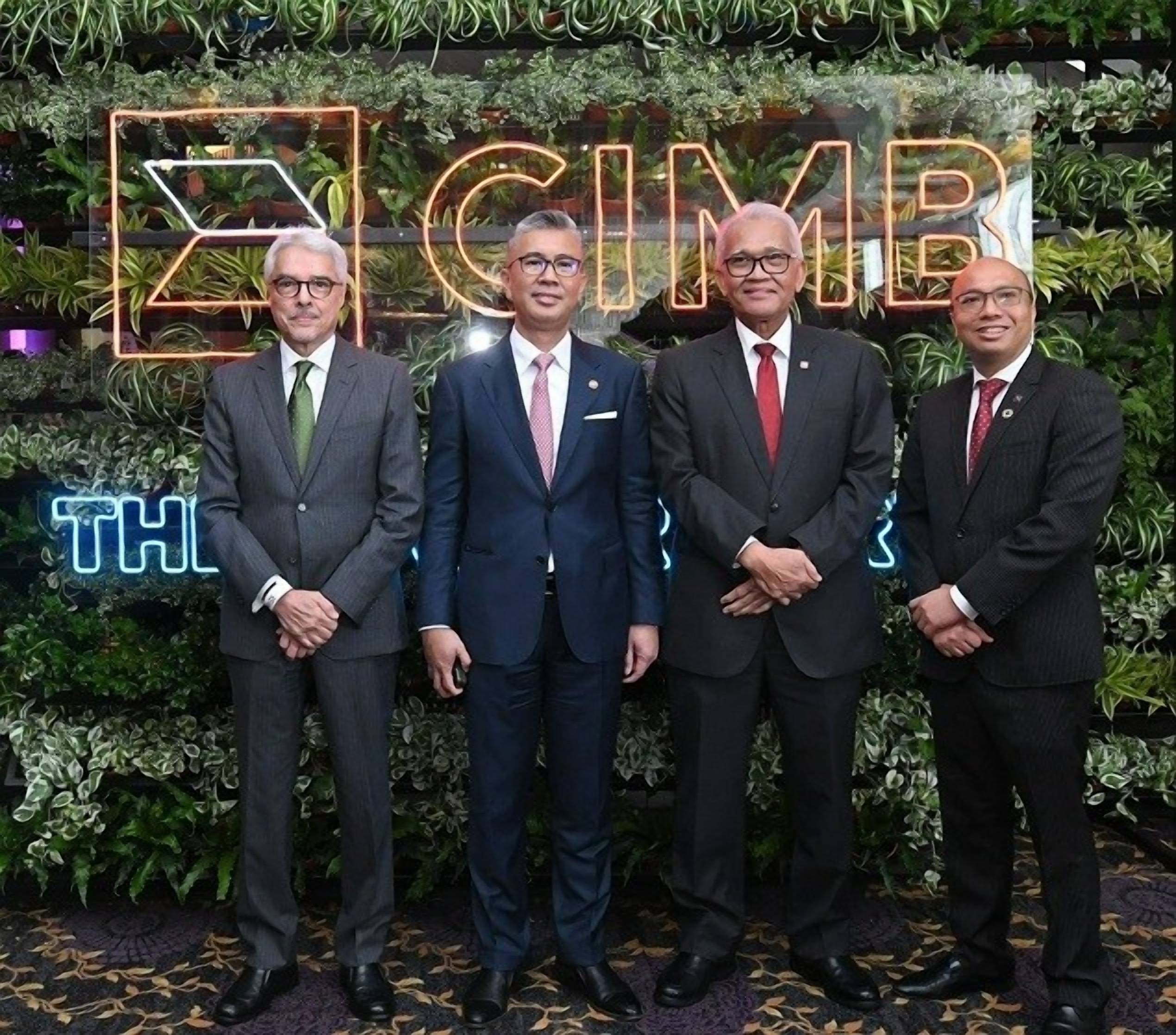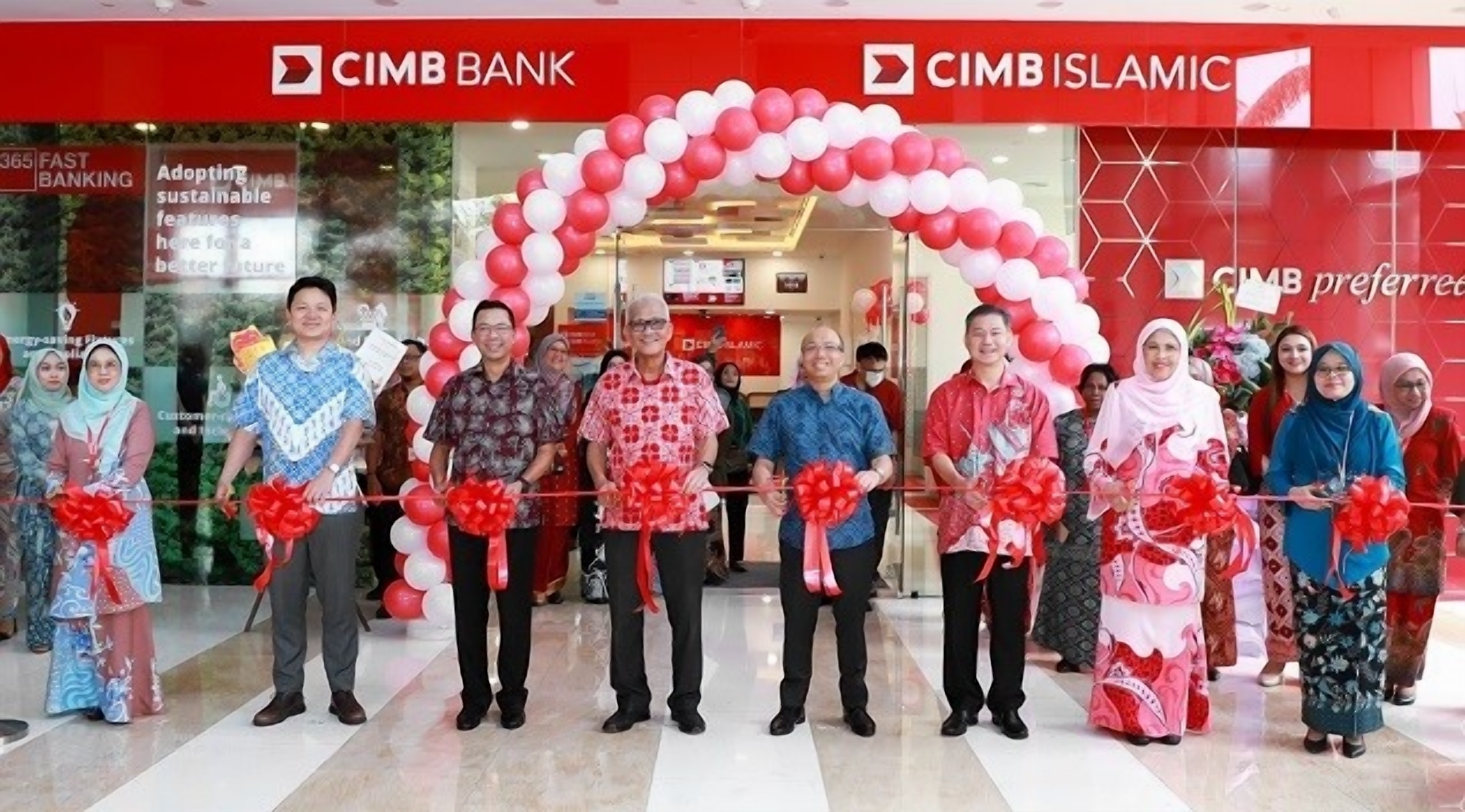CIMB Sets Ambitious 2030 Decarbonisation Targets
CIMB

Key Takeaways
CIMB becomes the first Malaysian bank to set 2030 decarbonisation targets for key sectors.
Targets aim to reduce emissions in oil & gas, real estate, power, palm oil, cement, and thermal coal.
Focus on supporting clients in transitioning to sustainable practices across ASEAN.
CIMB Group Holdings Berhad (CIMB) has emerged as a leader in sustainability by establishing ambitious 2030 decarbonisation targets for its oil and gas and real estate portfolios.
This move cements CIMB's position as the first Malaysian bank to comprehensively address carbon reduction across high-emitting sectors, aligning with its broader net-zero commitment by 2050.
Detailed Decarbonisation Plans
The group has reinforced its commitment by updating its white paper. This document outlines a roadmap for achieving decarbonisation, with specific pathways and actionable strategies for each of the six targeted sectors – oil & gas, real estate, power, palm oil, cement, and thermal coal. These sectors collectively represent 60% of CIMB's financing portfolio emissions (as of 2023).
Gurdip Singh Sidhu, CEO of CIMB Malaysia and CIMB Bank Berhad, said:
“We are pleased to announce the completion of CIMB’s 2030 decarbonisation targets, marking a significant milestone toward realising our long-term Net Zero target by 2050. These interim targets demonstrate our accountability and reinforce our commitment to facilitating a just transition across ASEAN. By breaking down our long-term goal into actionable and measurable milestones, we are paving the way for tangible progress.While we implement proactive measures to address climate risks in our portfolio and promote sustainable finance practices, CIMB remains committed to supporting and empowering our clients in transitioning to more sustainable business practices.”
“On top of that, our sector-specific decarbonisation plans are carefully tailored to closely align with the respective government policies and directives of each country, demonstrating our dedication to advancing national objectives across the regions we operate in”, added Gurdip, who also oversees the overall Group Sustainability efforts in CIMB.
Tailored Approach for Regional Success
The Group recognises the importance of aligning its decarbonisation plans with the specific government policies and directives of each country it operates in. This collaborative approach ensures that CIMB contributes to achieving national sustainability objectives across the ASEAN region.
Focus on Oil & Gas Transition
CIMB acknowledges the challenges faced by the oil and gas industry in transitioning to a low-carbon future. To support its clients, CIMB aims to reduce the Financed Emissions Lending Intensity (FELI) of its oil and gas portfolio by 16% by 2030. This target contains all emissions (Scope 1, 2, and 3) generated by both upstream exploration and production companies and integrated oil and gas players within the portfolio.
The decarbonisation target is based on the International Energy Agency's Net Zero Emissions by 2050 Scenario (IEA NZE), with additional insights from the IEA Sustainable Development Scenario (IEA SDS). This combined approach allows CIMB to establish a net-zero pathway specifically tailored to the ASEAN context.
Phasing Out New Upstream Oil Projects
Starting in 2025, CIMB will further restrict financing for new upstream oil fields approved for development after 2021. This aligns with the IEA NZE, which underlines that no new oil and gas projects are required globally beyond those already committed as of 2021, assuming existing assets meet future supply and demand needs.
Natural Gas as a Bridge Fuel
Recognising the crucial role of natural gas as a transitional fuel source for ASEAN, CIMB will continue to support responsible natural gas initiatives. This focus is particularly important for reducing dependence on coal within the power sector and ensuring short-term energy security through regional self-sufficiency.
Real Estate Decarbonisation Strategy
CIMB has set a target of reducing the operational emissions intensity of its commercial real estate portfolio by 34% by 2030. This target considers Scope 1 and 2 emissions generated by its real estate clients' operations. The target aligns with energy efficiency improvements outlined by the Carbon Risk Real Estate Monitor (CRREM), but additionally factors in a power grid decarbonisation rate based on the IEA Announced Pledges Scenario (APS) pathway.
The selection of this reference scenario acknowledges the limitations of real estate clients' direct influence on grid decarbonisation. While clients can control their own energy efficiency improvements, achieving these targets relies heavily on the broader shift towards clean energy within the power grid.
Supporting Sustainable Buildings
To meet this target, CIMB will actively finance the development, retrofitting, and maintenance of energy-efficient buildings. This includes supporting on-site renewable energy installations such as rooftop solar PV systems and energy storage solutions. Also, CIMB's net-zero aligned target for the power sector will contribute to further decarbonising the grid.
For more sustainable finance news
Discover an extensive network of ESG providers here
For more ESG course-related updates
Source: CIMB



